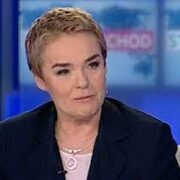

Putin will die if not today, then tomorrow. What will "The Day After" be like?
Here is a joke from the Russian Internet: Kremlin. – Your Majesty, Hamas members have come to ask for money. – Tell them I’m dead.
For a long time, rumors about the Russian dictator’s deteriorating health have been circulating. After the invasion of Ukraine in 2014, more or less reliable information began to surface. At that time, various media outlets reported on the possibility of cancer, specifically of the spinal cord, pancreas, or gastrointestinal tract. Other theories included Parkinson’s disease and even a dangerous infection following a botox injection.
The reports of the Russian President’s fatal illnesses have been rising significantly since February 24, 2022, and have reached their peak in recent days. It all started with a Telegram channel called “General SVR,” run by an alleged retired Lieutenant General named Viktor Mikhailovich. However, the channel’s credibility is questionable as it has been deemed unreliable. On October 22, the channel reported that Vladimir Putin had suffered a massive heart attack and was connected to equipment monitoring his vital parameters. Five days later, “General SVR,” said that the Russian President died on October 26 at 20.42.
Fuel was added to the fire when Russian analyst Valery Solovei, known for making sensational and unproven statements, claimed in a conversation with Ukrainian journalist Dmytro Gordon that Putin had died and his body was in a cold room within the presidential office at the Lake Valday residence. Once Solovei, who is also linked to the “General SVR” profile, confirmed the dictator’s death, the world media quickly and unquestionably reported it. It occurred even with warnings that the Kremlin might be involved in spreading the false information.
The 71-year-old Russian President’s life has been anything but comfortable since the start of the open and senseless aggression against Ukraine. It is uncertain when his death will occur, but the question remains critical: how will the Kremlin elites react, and what worldwide transformation will take place?
It is anticipated that Russia will undergo a significant systemic transformation sooner or later. The beneficial members of the President’s close circle will likely take advantage of this opportunity. This group includes not only Prime Minister Mikhail Mishustin but also General Nikolai Patrushev, the Security Council Secretary, both of whom are considered potential successors to Putin. For anyone who may have doubts, I ask them to recall the uneasy facial expression of the FSS General when Putin informed them of the decision to start the so-called special operation.
The new administration’s initial goal is expected to be to enhance relations with the West. They will declare that Russia is changing and deserves an opportunity. Despite the discontinuation of the alleged special operation, the return of Crimea to Ukraine or the reintegration of Kherson, Zaporizhzhia, Luhansk, and Donetsk into Ukraine is unlikely to happen. Kyiv may raise objections, but its ability to take action depends on the West regarding financial and military support.
The question at hand is multifaceted: where will the West stand post-Putin’s death? Who will hold office as the next President of the United States? What is the timeline for resolving Israel’s war with Hamas? Notwithstanding, it is evident that support for Ukraine is weakening. The fatigue with the ongoing Eastern European conflict is setting in, and the urge to revert to former arrangements – with cheap energy options – is growing. Moreover, the West is deeply concerned about the possibility of nuclear chaos, and a successful takeover of the Kremlin could prevent such a scenario.
The above events will likely increase support for the so-called “democratic” Russian leadership. However, it also indicates that after an initial period of significant changes, Russia will eventually return to its traditional approach of pursuing imperial dominance. It will inevitably result in the “birth” of a new leader, Putin alike. At some point in the future, of course.
Unfortunately, I’m in agreement with the analysis of American scholar Professor Janusz Bugajski, who argues that the only authentic means of democratizing Russia is to dismantle the Russian Federation. In conclusion, we should extend warm wishes to Vladimir Vladimirovich, hoping he continues to live longest, as he is closest to completing Professor Bugajski’s forecasts.
Maria Przełomiec for belsat.eu
Translated by PEV
The opinions and thoughts expressed in the text reflect only the author's views.

